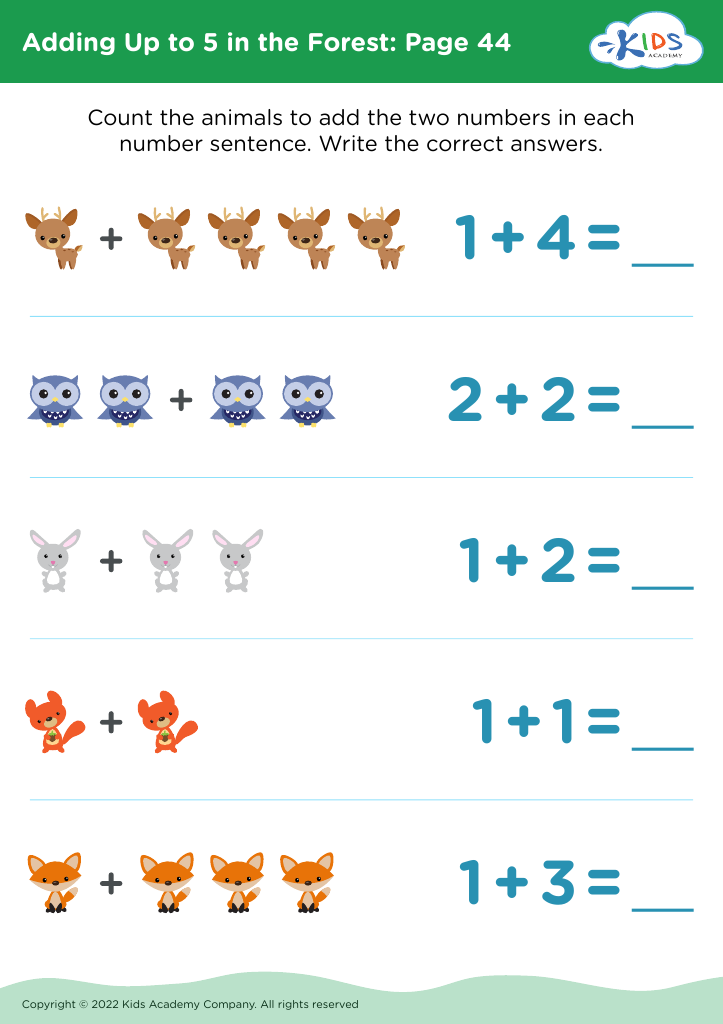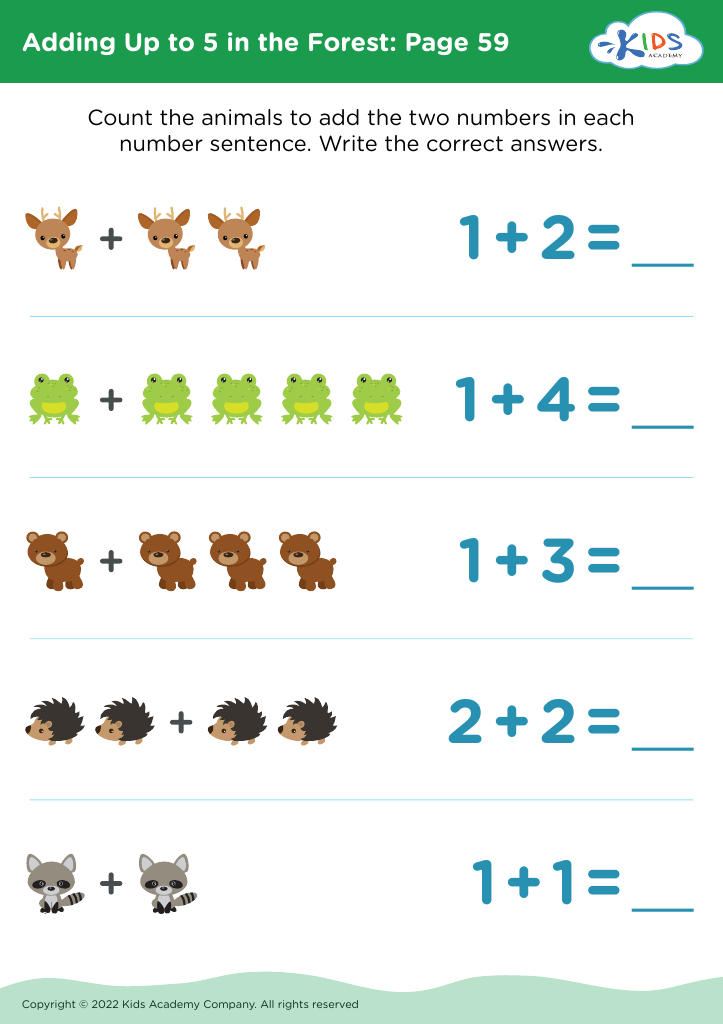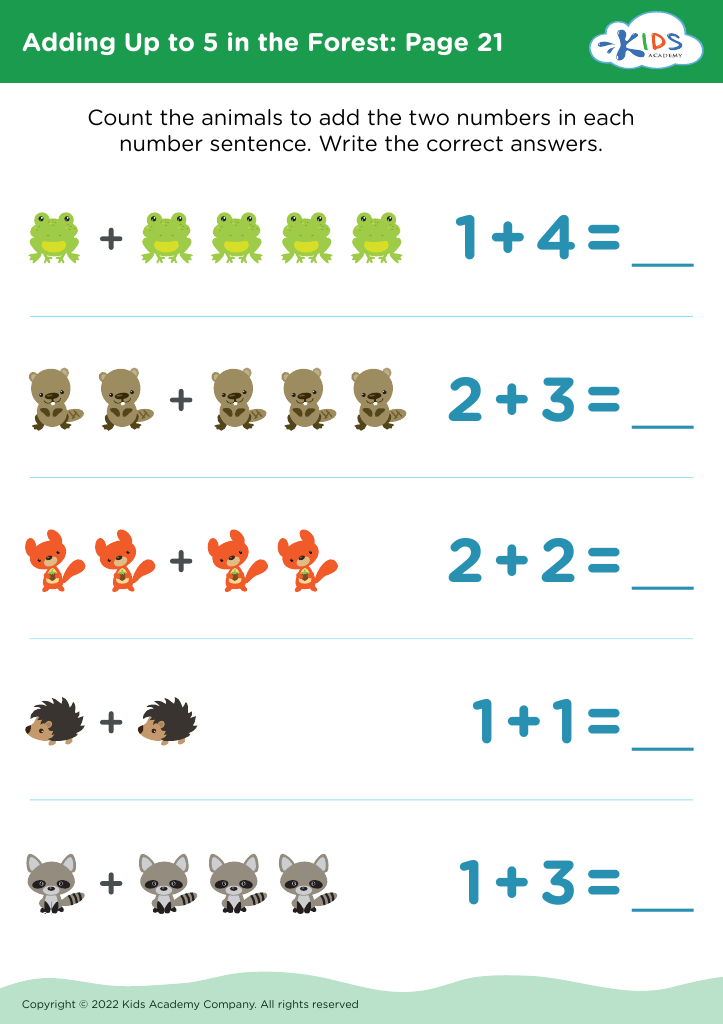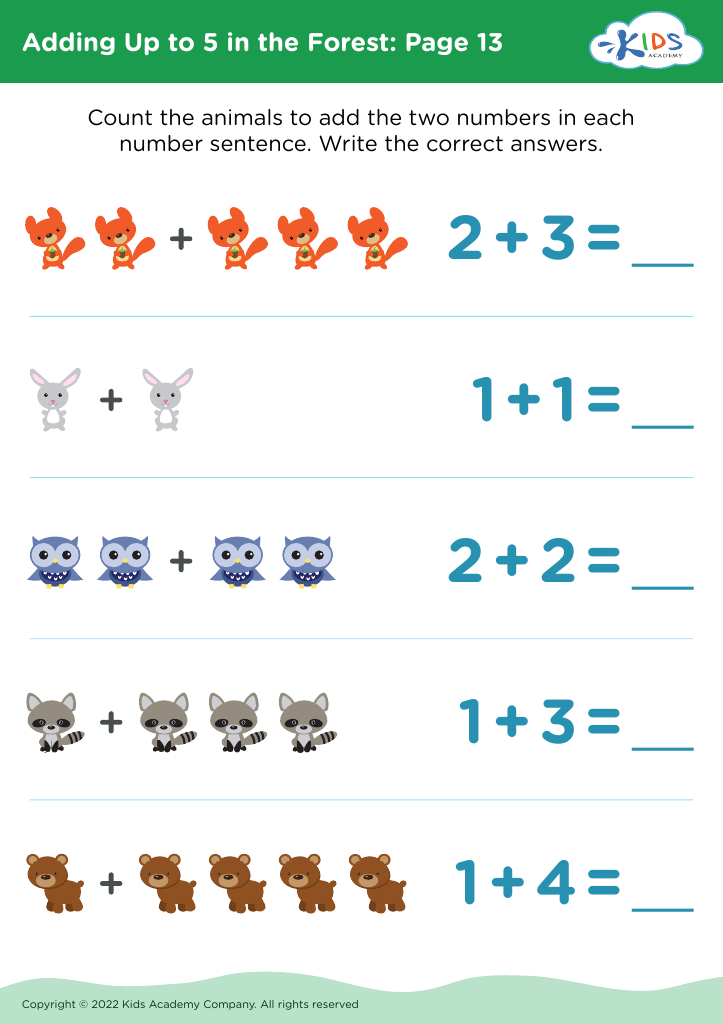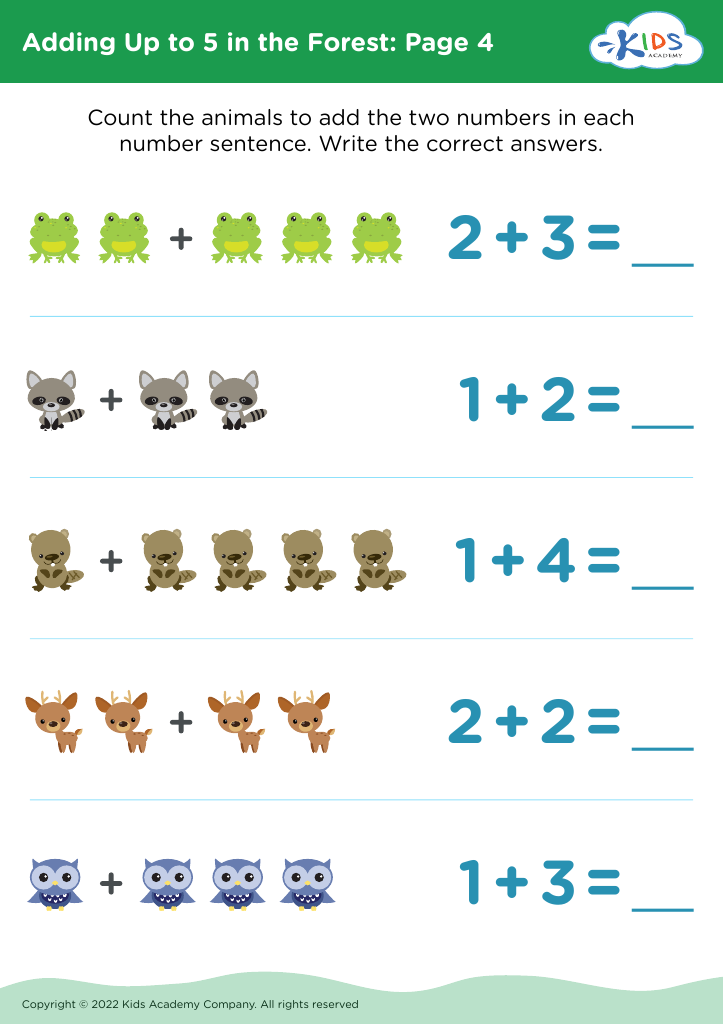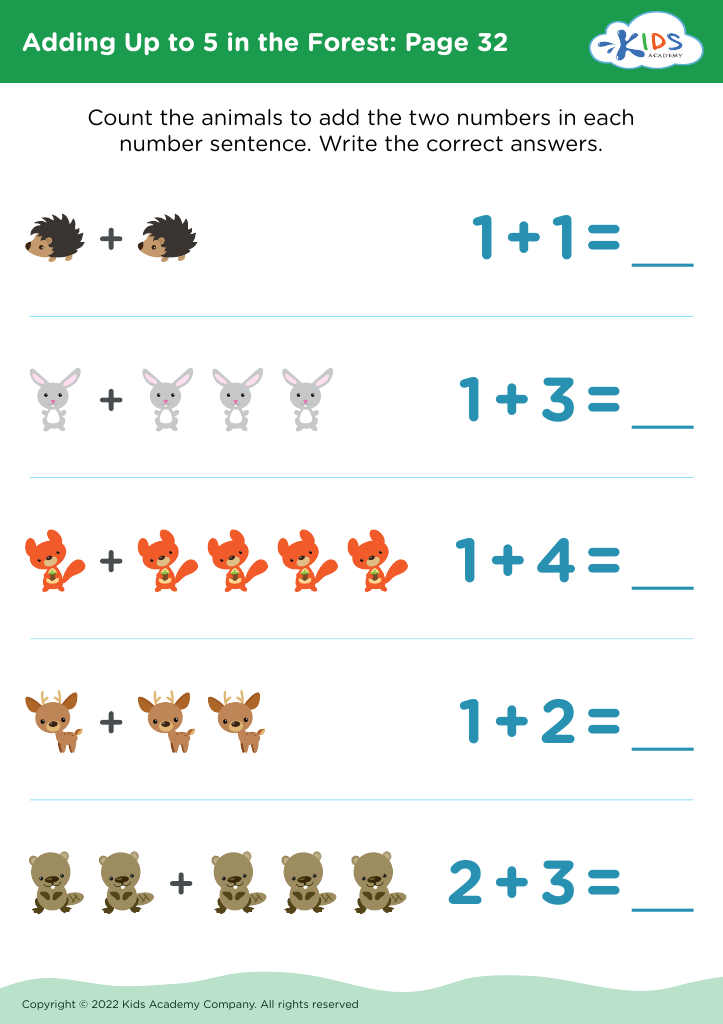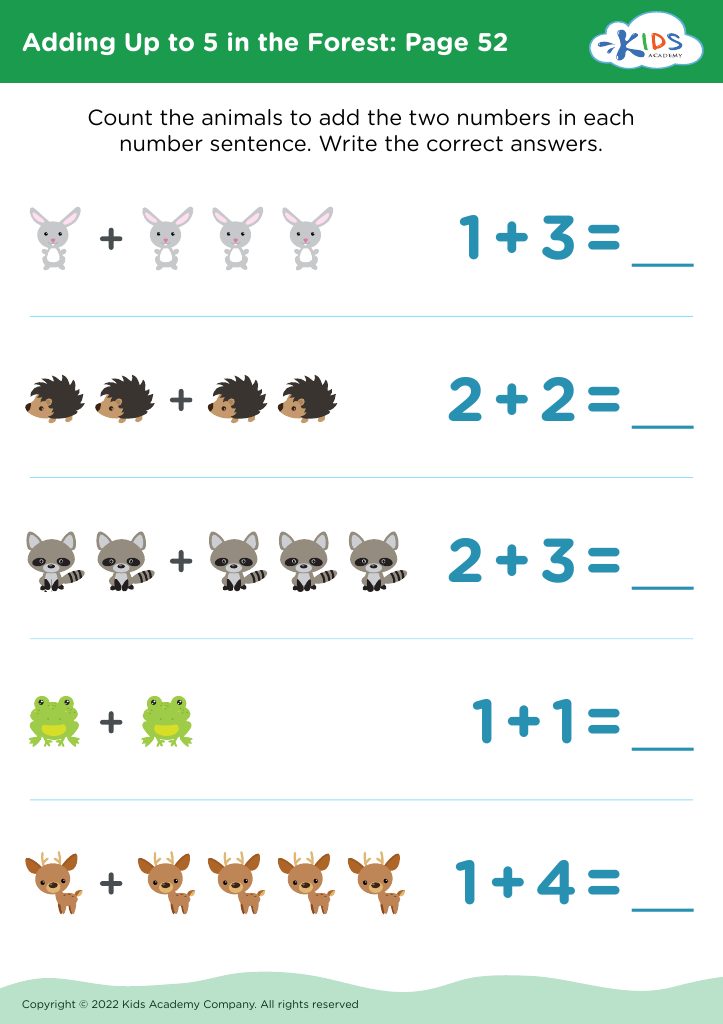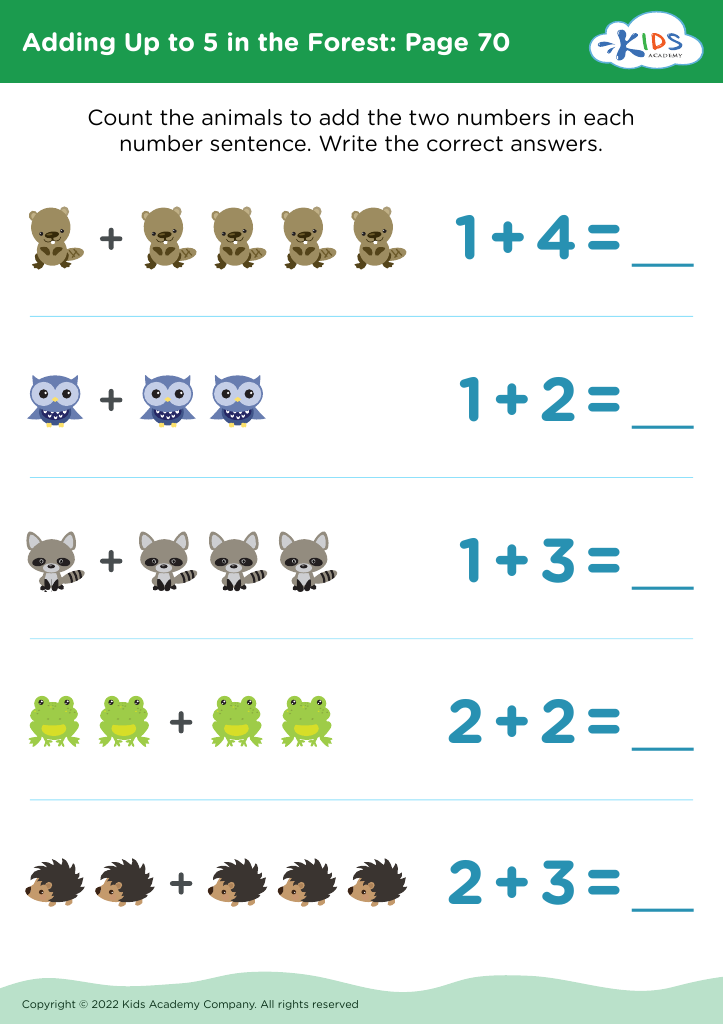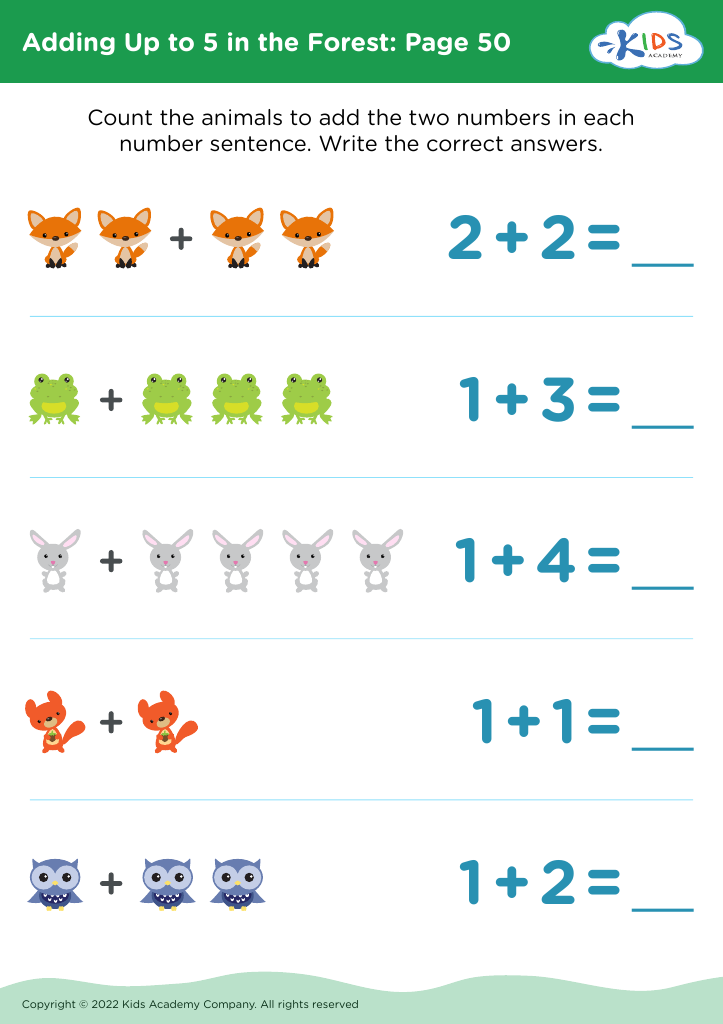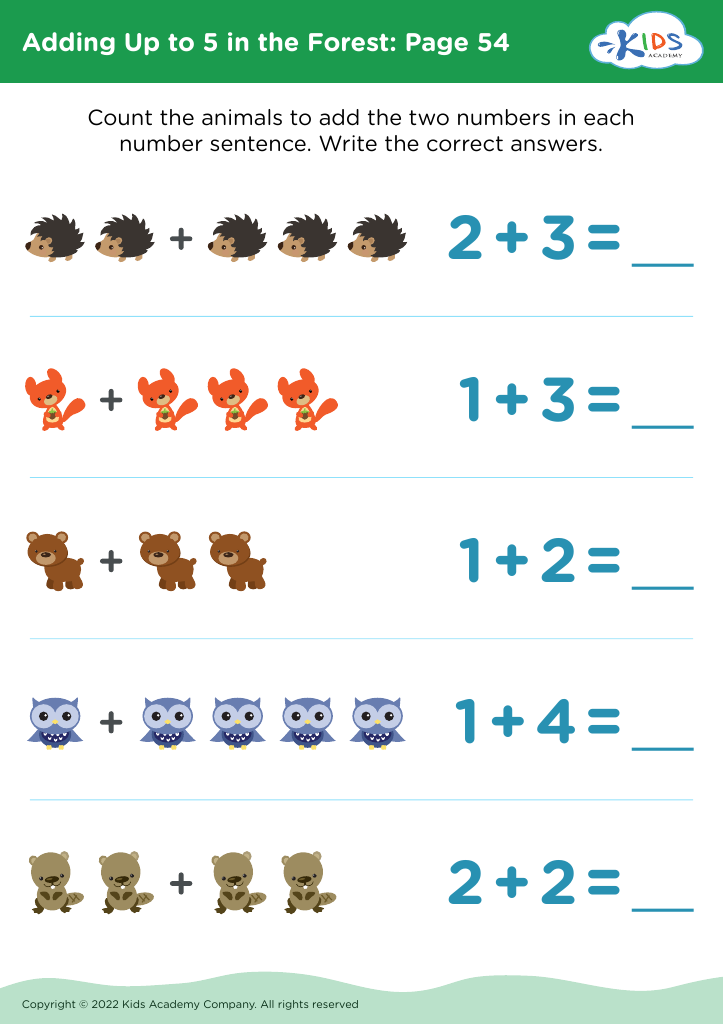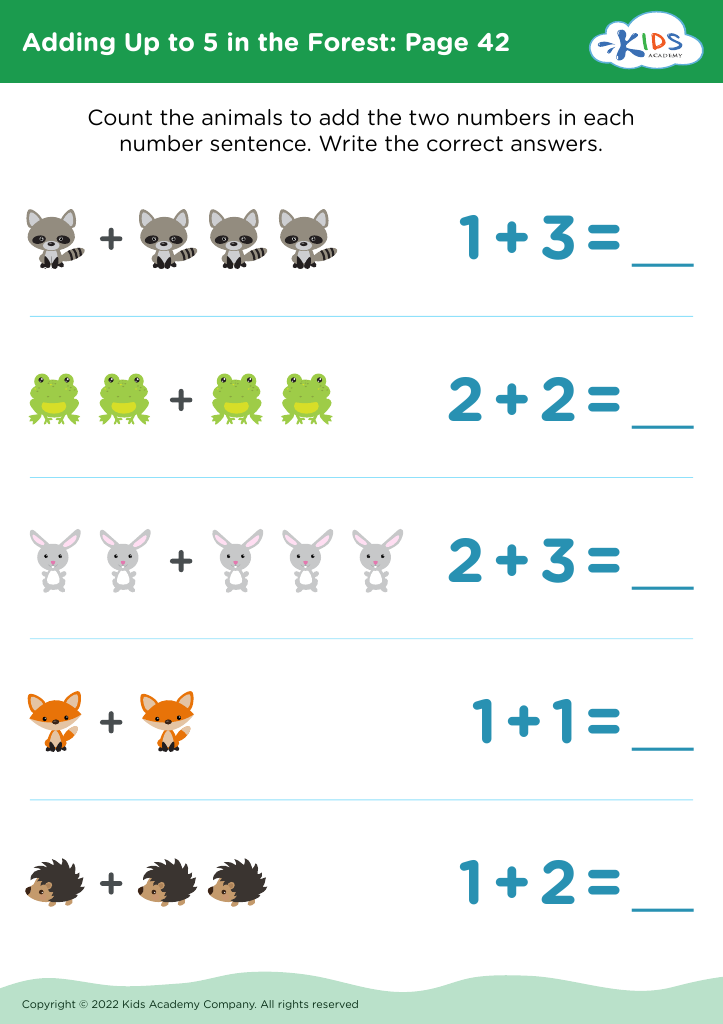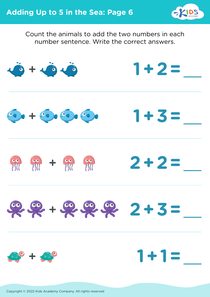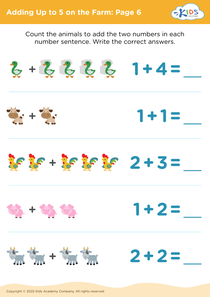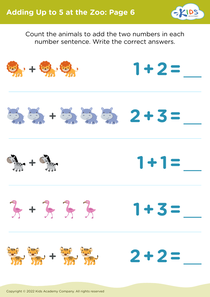Problem-Solving Skills Adding in the Forest Worksheets for Ages 3-9
11 filtered results
-
From - To
Introduce your child to the magical world of the forest while enhancing problem-solving skills with our "Adding in the Forest Worksheets" for ages 3-9. Designed specifically to foster cognitive development, these engaging worksheets bring math to life through nature-themed activities. Children will enjoy counting woodland creatures, solving fun puzzles, and tackling addition problems in a visually appealing, interactive format. Each worksheet is crafted to challenge young minds, strengthening their mathematical foundation and critical thinking abilities. Transform learning into an adventure, and watch as your child’s confidence and problem-solving prowess grow amidst the enchanting forest backdrop.
Problem-solving skills are fundamental for children's cognitive development, and early exposure through engaging activities sets a foundation for lifelong learning. "Problem-Solving Skills Adding in the Forest," designed for ages 3-9, combines educational elements with a fun, interactive environment.
For young learners, this type of activity promotes critical thinking and resilience. It teaches children how to approach challenges methodically, encourage persistence, and recognize multiple solutions. When children solve problems alongside age-appropriate characters, like animals in a forest setting, learning becomes relatable and enjoyable, fostering a love for investigation and discovery.
Incorporating problem-solving skills at this age also supports mathematical thinking. Through age-appropriate addition problems, children develop numeracy skills in a context they understand, making abstract concepts more concrete. As they work through problems, they build confidence in their abilities, better preparing them for future, more complex tasks.
Parents and teachers benefit as well. They gain insights into a child's learning process and can tailor support to individual needs. Additionally, activities like this one encourage collaborative learning, where children can discuss problems and solutions, enhancing social and communication skills. Ultimately, these exercises not only equip children for academic success but also for problem-solving in daily life, cultivating adaptable, independent thinkers.
